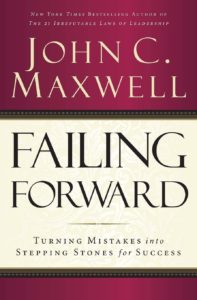
And where were you?- Winston Churchill
A story is told that in the early days of World War II, Winston Churchill called Britain’s coal miners together. A great crisis had arisen. The miners were not getting out enough coal to fuel the factories that produced the planes and ships they so desperately needed.
When Churchill stood to speak he said, “I want to give it to you straight.” For an hour and forty minutes, he outlined the desperate situation confronting Britain.
Then in stirring language he said, “When at last it is all over, we’ll parade these streets again and as you go by, people will call out, “And where were you?” Someone will answer, ‘I marched with the Eighth Army,’ and someone else will say, ‘I was in the skies over Britain,’ Another will reply, ‘I was in the Merchant Maries pushing the ships through the sea up to Archangel,’ Then I shall be standing there and I will call out, ‘Where were you?’ I will hear your answer, ‘We were down in the black pits right up against the face of the coal.”
Then thousands of coal miners arose and with tears streaming down their faces, cheered the Prime Minister, and the coal came out. They had caught a fresh vision of the importance of their work.
We are challenged on every front right now. We see the horrific images coming out of Ukraine, our hearts are broken as we see the human suffering and senseless loss of life.
And just when we begin to see that we have turned the corner with COVID we are now facing an economic strain that we haven’t experienced in decades.
It’s in moments of historic significance we find ourselves living in right now, that we need to hear in the back of our minds the words Churchill invoked as he spoke to the miners when he said, “And where were you?”.
This is one of the most significant questions of our generation that we need to answer. I’m asking all leaders to search their hearts and ponder these questions:
- In this time of adversity and trial – Where are you?
- When our world cries out for leaders with backbone, clarity, and vision – Where are you?
- When the world begs for leaders with integrity and true north – Where are you?
- When there is brokenness and despair in the hearts of people around you – Where are you?
- With the spiritual climate in decline and the moral vacuum has to be filled – Where are you?
- When partisans at every turn try to divide us – Where you are?
- When our neighbors are in distress and in need – Where are you?
- When those without a voice need a voice to speak on their behalf – Where are you?
- When our youth need mentors and a guiding hand – Where are you?
Our world needs leaders to step up and answer these questions and more with courage and conviction. When the world is broken all around us, may people look to you and me as a source of healing and strength. Click To Tweet
Final Thoughts
The Old Testament speaks of a woman named Esther who became queen. In Esther 4:14 it says, “…and who knows but that you have come to your royal position for such a time as this?” This verse was spoken to her because she found herself in a position to rescue her people from death. In that season of her life, her faith was tested, just like your leadership is being tested today. Esther trusted and believed that God had put her in that position, in that time, to do what needed to be done. Her faith was tested, but God was working in her position.
I believe that this is our moment in time to step up be the leaders the world is looking for – for such a time as this.
©2022 Doug Dickerson

 Over the years I’ve come to the realization that I’ve helped more people not by what I ever had to say, but simply by listening. I’ve also learned that I don’t have to “fix” everyone’s problems and more times than not it’s not what people are after. People today want to be heard and have leaders in their life who will listen. Be a generous listener. It can a world of difference.
Over the years I’ve come to the realization that I’ve helped more people not by what I ever had to say, but simply by listening. I’ve also learned that I don’t have to “fix” everyone’s problems and more times than not it’s not what people are after. People today want to be heard and have leaders in their life who will listen. Be a generous listener. It can a world of difference.


 In his book,
In his book, 



